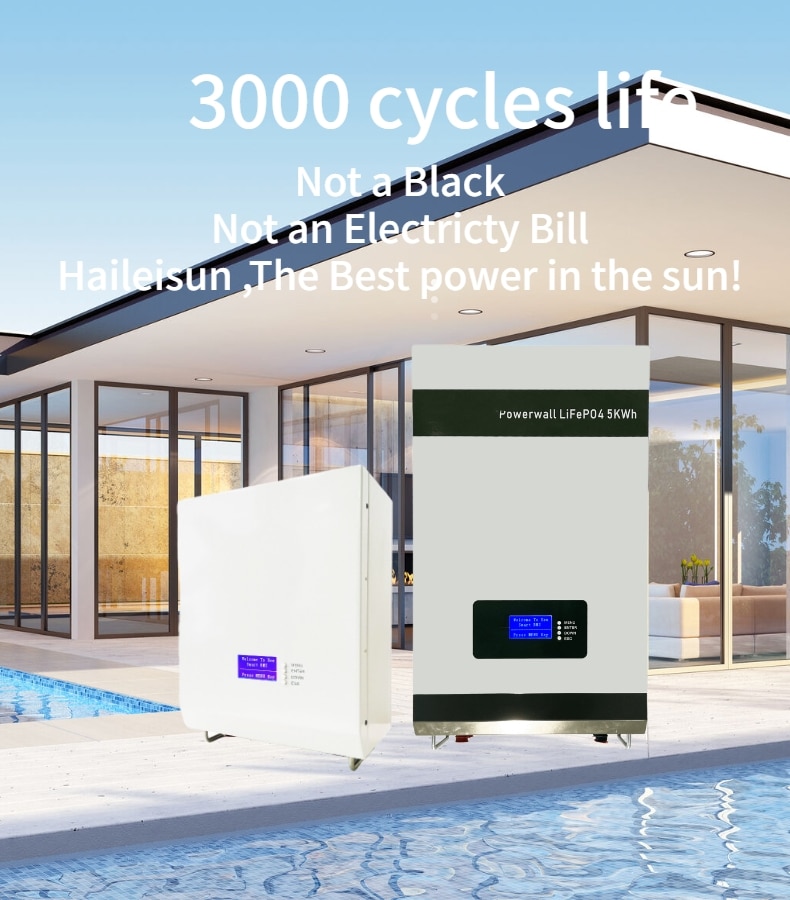
Home solar battery storage is a revolutionary technology that allows homeowners to store and utilize the excess energy generated by their solar panels. In simple terms, it involves using a battery system to store the energy produced during the day so that it can be used during the night or when the sun is not shining. This means that homeowners can have a constant and uninterrupted supply of clean and renewable energy, even when the sun is not out.
With home solar battery storage, homeowners can reduce their reliance on the traditional power grid and potentially save money on their energy bills. By storing excess energy, they can avoid purchasing electricity from utility companies during peak hours when the rates are usually higher. Additionally, home solar battery storage provides a backup power source during power outages, ensuring that essential appliances and devices can still function.
In this article, we will delve into the basics of home solar battery storage, exploring how it works and the benefits it offers. We will also provide insights on choosing the right home solar battery system and discuss the future of this technology. So, whether you are considering installing solar panels or are simply curious about how home solar battery storage can revolutionize the way we power our homes, this article will provide you with a comprehensive understanding of this exciting innovation.
Understanding the Basics of Home Solar Battery Storage
Understanding the basics of home solar battery storage can give homeowners the power to take control of their energy consumption and make a positive impact on the environment. Home solar battery storage refers to the technology that allows homeowners to store excess electricity generated by their solar panels for later use. Traditional solar panel systems generate electricity during the daytime when the sun is shining, but this energy is typically used immediately or sent back to the grid. With battery storage, the excess electricity can be stored in batteries and used during nighttime or when the sun is not shining, reducing reliance on the grid and maximizing the benefits of solar energy.
Home solar battery storage systems consist of several components, including the solar panels, an inverter, and the batteries. The solar panels capture sunlight and convert it into electricity, which is then sent to the inverter. The inverter converts the direct current (DC) electricity produced by the solar panels into alternating current (AC) electricity that can be used to power household appliances. Excess electricity that is not immediately used is stored in the batteries instead of being sent back to the grid. The batteries store the electricity and release it when needed, ensuring a continuous power supply even when the solar panels are not generating electricity. By utilizing home solar battery storage, homeowners can reduce their reliance on the grid, lower their electricity bills, and contribute to a greener and more sustainable future.
How Home Solar Battery Storage Works
Imagine being able to harness the power of the sun and store it for later use, allowing you to take control of your energy consumption like never before. That’s exactly what home solar battery storage offers. Home solar battery storage systems work by capturing the excess energy generated by your solar panels during the day and storing it in a battery for use during the night or when the sun isn’t shining. This way, you can maximize the use of your solar energy and reduce your reliance on the grid.

The process starts with the solar panels converting sunlight into electricity, which is then used to power your home. Any excess energy that is not immediately consumed is directed to the battery storage system. The battery stores this energy in a chemical form, typically in lithium-ion batteries, which are known for their high energy density and long lifespan. When your solar panels aren’t producing electricity, such as at night or during cloudy days, the stored energy in the battery is then used to power your home. This allows you to continue using solar energy even when the sun isn’t shining, increasing your energy independence and reducing your reliance on the grid. Overall, home solar battery storage systems provide a way to optimize the use of solar energy and provide backup power, giving homeowners more control over their energy consumption and reducing their carbon footprint.
Benefits of Home Solar Battery Storage
Maximizing the use of solar energy can revolutionize your energy consumption and provide you with backup power, giving you ultimate control over your electricity needs. One of the key benefits of home solar battery storage is the ability to store surplus solar energy generated during the day for use during the night or on cloudy days. This means that even when the sun is not shining, you can still power your home with clean, renewable energy. By utilizing a home solar battery storage system, you can reduce your dependence on the grid and lower your electricity bills.
Another advantage of home solar battery storage is the ability to have backup power during power outages. Traditional grid-tied solar systems are designed to shut down during blackouts for safety reasons, which means that even if you have solar panels, you won’t have power when the grid goes down. However, with a home solar battery storage system, you can continue to power your essential appliances and devices even when the grid is down. This can provide you with peace of mind knowing that you have a reliable source of backup power in case of emergencies or natural disasters.
Home solar battery storage offers several benefits that can improve your energy independence and provide backup power when you need it most. By storing surplus solar energy, you can reduce your reliance on the grid and lower your electricity bills. Additionally, having a home solar battery storage system ensures that you have a reliable source of power during power outages, giving you peace of mind and ultimate control over your electricity needs.
Choosing the Right Home Solar Battery System
When selecting the appropriate solar battery system for your household, it’s essential to consider factors such as capacity, efficiency, and compatibility with your existing solar setup. The capacity of a solar battery system refers to the amount of energy it can store. It’s important to choose a system with sufficient capacity to meet your household’s energy needs, especially during times when solar energy production is low, such as at night or during cloudy days.
Another crucial factor to consider is the efficiency of the solar battery system. This refers to how effectively the system can convert and store solar energy. A more efficient system will ensure that a higher percentage of the energy generated from your solar panels is stored and can be used when needed. It’s worth noting that the efficiency of a battery system can vary depending on factors such as temperature and the age of the system.
Compatibility with your existing solar setup is also a key consideration. Ensure that the solar battery system you choose is compatible with your current solar panels and inverter. Some battery systems may require specific inverters or have limitations on the number of panels they can support. It’s important to consult with a professional to ensure that the system you choose will integrate seamlessly with your existing setup.
By considering factors such as capacity, efficiency, and compatibility, you can choose the right home solar battery system that will effectively meet your energy storage needs. Investing in a reliable and efficient system will not only provide you with backup power during outages but also help you maximize the use of solar energy and reduce your reliance on the grid.
The Future of Home Solar Battery Storage
In the future, households will have access to advanced energy storage systems that seamlessly integrate with renewable energy sources. These home solar battery storage systems will not only store excess energy generated by solar panels but also intelligently manage and distribute that energy throughout the day. With advancements in technology, these batteries will become more efficient and have higher storage capacities, allowing homeowners to rely more on clean energy and reduce their dependence on the grid.
One of the key developments in the future of home solar battery storage is the integration of artificial intelligence (AI) and machine learning. These technologies will enable battery systems to learn and adapt to the energy consumption patterns of individual households, optimizing the storage and distribution of energy accordingly. AI algorithms will analyze historical energy usage data, weather patterns, and even real-time electricity prices to make informed decisions about when to charge or discharge the batteries. This will not only maximize the self-consumption of solar energy but also help homeowners save money by using electricity when it is cheapest or selling excess energy back to the grid when prices are high.
Additionally, the future of home solar battery storage will see advancements in battery chemistries and materials. Lithium-ion batteries are currently the most commonly used for residential energy storage systems, but new technologies are emerging. For example, solid-state batteries are being developed, which offer higher energy densities, faster charging capabilities, and improved safety compared to lithium-ion batteries. These advancements will result in home solar battery storage systems that are smaller, more efficient, and longer-lasting, making renewable energy a more viable and reliable option for homeowners. As the costs of these technologies continue to decrease, more households will be able to invest in home solar battery storage, further accelerating the transition to a clean energy future.
Frequently Asked Questions
What are the different types of batteries used in home solar battery storage systems?
The different types of batteries used in home solar battery storage systems include lead-acid, lithium-ion, and flow batteries. These batteries store the excess energy generated by solar panels for later use, ensuring a continuous supply of electricity.
How long do home solar battery storage systems typically last before needing to be replaced?
Home solar battery storage systems typically last for about 10 to 15 years before needing to be replaced. However, this can vary depending on factors such as usage patterns and maintenance.
Can home solar battery storage systems be installed in both new and existing homes?
Yes, home solar battery storage systems can be installed in both new and existing homes. They provide a reliable and sustainable energy solution, allowing homeowners to store excess solar energy for use during non-sunlight hours.
Are there any government incentives or rebates available for installing a home solar battery storage system?
Yes, there are government incentives and rebates available for installing a home solar battery storage system. These can help offset the initial cost and make it more affordable for homeowners.
Can home solar battery storage systems be used during power outages to power essential appliances and devices?
Yes, home solar battery storage systems can be used during power outages to power essential appliances and devices. They provide backup power, ensuring you have electricity even when the grid is down.
Conclusion
In conclusion, home solar battery storage is a game-changer in the renewable energy industry. It provides homeowners with the ability to store excess solar energy generated during the day and use it during the night or during power outages. This technology not only reduces reliance on the grid but also helps lower electricity bills and reduce carbon emissions. Additionally, choosing the right home solar battery system is crucial to maximize the benefits and ensure efficient energy management. As the demand for renewable energy continues to grow, the future of home solar battery storage looks promising, with advancements in technology and increasing affordability making it more accessible to homeowners.



